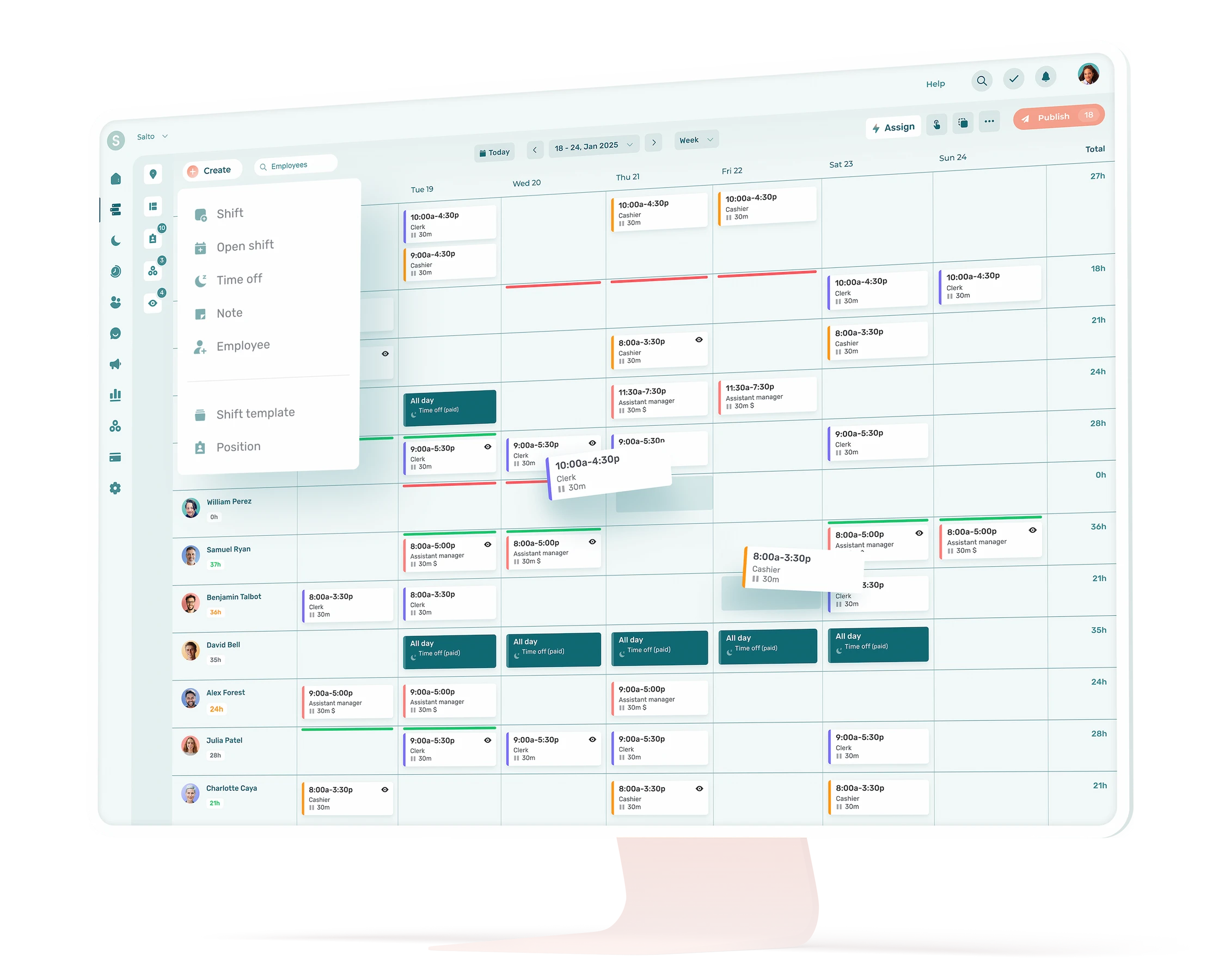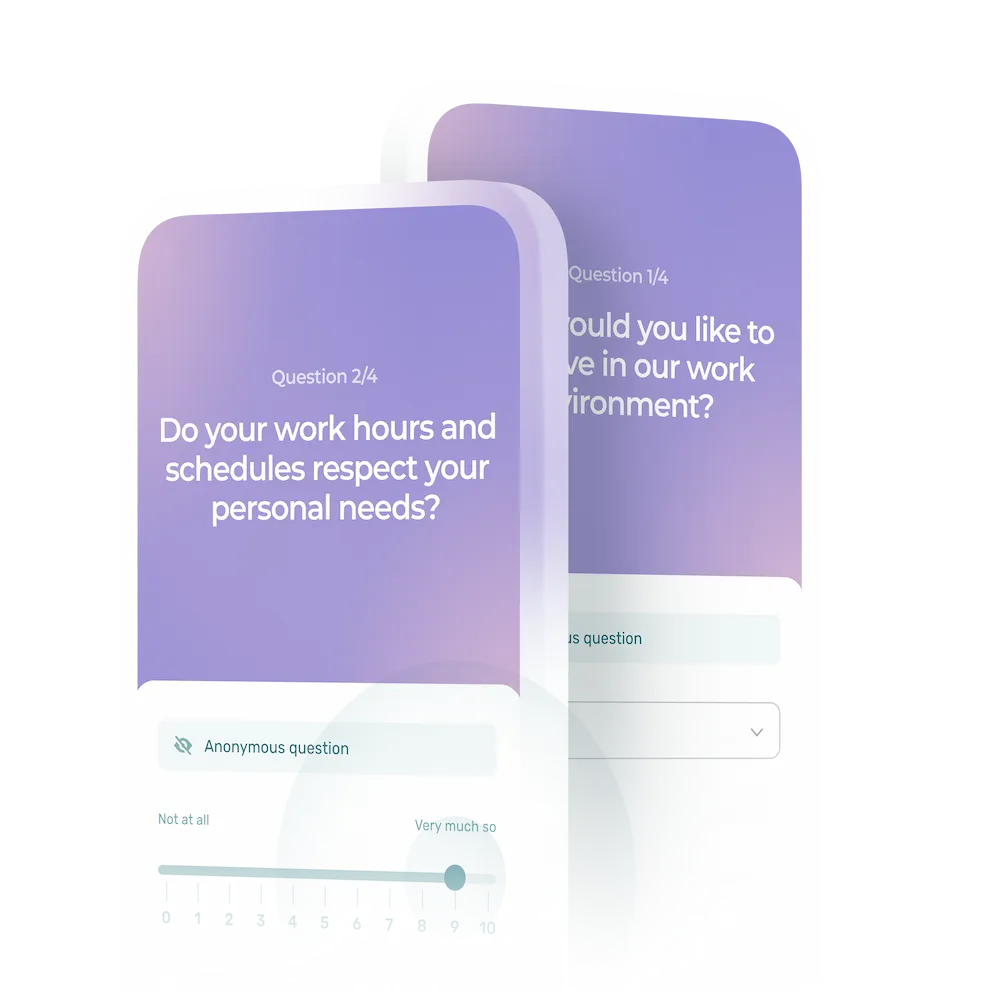Taking care of your restaurant’s e-reputation is absolutely essential: restaurant-goers are some of the most review-conscious consumers out there. Before trying a new place, they almost always check what others are saying online.
What people say about your business online has a huge impact on potential customers. In fact, did you know that 90% of restaurant-goers choose where to eat based on online reviews?
A strong e-reputation—or online reputation—is a powerful way to attract new customers and keep them coming back.
In this article, we’ll explore why your restaurant’s e-reputation matters so much, and share 7 practical strategies to help you improve and maintain it.
What Is E-Reputation?
E-reputation, also known as online reputation, refers to the public perception and visibility of a business on the internet. It’s shaped by online reviews, social media comments, and even the content your business shares on its own platforms.
A strong e-reputation helps boost your restaurant’s credibility and attract more customers.
What Influences a Business’s E-Reputation?
Several factors can affect a business’s online reputation, including:
- Online reviews and comments: Whether on Google, TripAdvisor, Yelp, social media, forums, Reddit, or blogs, feedback can come from customers—or from anyone else participating in the conversation. For example, if an influencer posts a negative story about a restaurant, their followers might flood Google with poor reviews, even if they’ve never visited the place themselves.
- Customer relations: How you respond to online reviews, the quality of your in-person service, and the honesty of your offering (accurate delivery times, quality ingredients, reliable opening hours, etc.) all play a role.
- Social media presence: An active and authentic presence, thoughtful crisis management, and partnerships with influencers can all affect perception.
- Media coverage: News articles or media reports can shape how your restaurant is seen.
- Search engine visibility: SEO and having a strong presence on Google help reinforce your credibility.
- Social responsibility: Running a responsible business—like offering healthy working conditions—can strengthen your reputation.
- Employee management practices: Current and former staff can have a major impact on your reputation. That’s why it’s so important to adopt solid management practices and use employee management software to streamline operations and support your team.
E-reputation is influenced by a wide range of fast-moving factors. That’s why restaurants must monitor their online image proactively, engage with their audience regularly, and manage potential crises with care to maintain a strong reputation.
Who Shapes Your Online Reputation?
Anyone with a connection or interest in your restaurant can influence your e-reputation—whether they’re customers, journalists, influencers, partners, employees, or even competitors. All it takes is an internet connection.
Even people who’ve never set foot in your restaurant can impact how it’s perceived online.
Key players that shape a business’s e-reputation include:
- Current and former employees
- Customers
- Suppliers
- Business partners
- The business itself
- Media
- Journalists
- Competitors
- Content creators
Why Build Your Restaurant’s E-Reputation?
As a restaurant manager, understanding how your online reputation impacts your success is essential.
A strong e-reputation builds customer trust and draws in new guests. On the flip side, a poor reputation can seriously harm your business.
The Benefits of Managing Your E-Reputation
When managed well, your e-reputation can help:
- Improve your brand image
- Build customer loyalty
- Attract new customers
- Boost your restaurant’s online visibility
- Generate word-of-mouth buzz online
- Make hiring easier
- Manage crises more effectively
- Spot potential issues early
- Increase revenue
How E-Reputation Affects Your Employer Brand
Your e-reputation directly shapes your employer brand—that is, how your business is perceived by current staff and potential candidates. A positive reputation helps attract and retain employees, while a negative one can turn candidates away and lower team morale.
What’s more, customers tend to view businesses that treat their employees well more favorably, which helps build lasting trust.
The Risks of Neglecting Your Online Reputation
Ignoring your restaurant’s online reputation can lead to real and lasting damage. The risks of a poor e-reputation include:
- Loss of customers
- Decreased revenue
- Damage to your image and credibility
- Difficulty recruiting new staff
- Higher employee turnover
- Loss of valuable partnerships
7 Strategies to Strengthen Your Restaurant’s E-Reputation
Here are 7 actionable strategies to help you strengthen your restaurant’s e-reputation and boost your online presence.
1. Monitor Your E-Reputation Regularly
Monitoring your e-reputation means keeping track of what people are saying about your restaurant online—whether through reviews, comments, articles, or social media posts. This is essential for maintaining a positive image and managing the potential impact of negative feedback or crises.
By staying on top of online mentions, you can respond quickly to both praise and criticism. Negative reviews can be addressed before they escalate, while positive ones can be highlighted to showcase your excellent customer service.
This also allows you to spot emerging controversies early and prevent misinformation from spreading. Plus, keeping an eye on your competitors might give you valuable insights and ideas worth adapting.
2. Optimize Your Website and Social Media Profiles
To take control of your image, attract more customers, and build a strong online reputation, your restaurant needs a well-curated digital presence. Optimizing your website and social media profiles is key to projecting a professional image, reassuring potential customers, and encouraging positive reviews.
On social media, focus on visual content like photos and videos to promote your restaurant. Share exclusive offers or showcase your seasonal menu—especially if it features local ingredients—to spark engagement and build a positive reputation online.
Make sure your website is always up to date. Clear, accurate information—like your opening hours, menu, and pricing—helps prevent frustration and improves the overall customer experience. Hiring a professional photographer to showcase your dishes and space can also go a long way.
Don’t forget to claim and update your Google Business Profile. It helps build credibility and drives more traffic to your website.
3. Encourage Customer Reviews—and Respond to Them
Online reviews play a major role in shaping a restaurant’s reputation and heavily influence the decisions of potential customers. A business with lots of positive feedback builds trust and draws more traffic.
Encouraging your customers to share their experience—and responding to their reviews, whether positive or negative—shows your commitment to customer satisfaction and boosts your credibility.
Rather than waiting for customers to leave feedback on their own, make it easy and rewarding to do so. Here are a few effective ways:
- Add a QR code to your menu or checks
- Ask happy customers directly
- Offer a small incentive, like a discount
- Use social media or your newsletter to prompt reviews
Always thank your customers when they leave positive feedback:
- “Thanks for your message, Emily! We’re so glad you loved the cocktails—see you again soon.”
And respond to negative reviews with professionalism and openness:
- “We’re sorry to hear the service didn’t meet your expectations. If you’re willing to give us another shot, your next meal is on us. Please contact us privately so we can send you the details.”
Since 2025, Google Business Profile now offers an AI review response assistant. If you’re dealing with a high volume of reviews each week, this tool could help you manage responses more efficiently.
4. Build a Strong Content and SEO Strategy
Did you know that the top three Google search results get over 54% of all clicks? That’s why it’s so important for your website to appear near the top when customers are looking for restaurants in your area.
To get there, you’ll need to invest in SEO and create a solid content strategy. High-quality content helps attract new customers—and keep them coming back.
A strong social media presence can also enhance the customer experience and drive engagement. Share photos and videos of your dishes, take your audience behind the scenes, or repost user-generated content (UGC) from your followers.
5. Use Tools to Monitor Your E-Reputation
To effectively monitor your e-reputation, you’ll need reliable tools. This will help you catch negative feedback early, respond quickly, identify trends, and protect your restaurant from damaging rumors.
Tools like Google Alerts, Mention, or Hootsuite can notify you of new mentions and make the task more manageable. And if the workload feels overwhelming, don’t hesitate to work with professionals to stay on top of it.
6. Build Local Partnerships
Partnering with local businesses or entrepreneurs can boost your visibility and connect you with a wider audience.
It’s also a great way to enhance your customers’ experience and showcase your involvement in the local community.
Here are a few ideas:
- Collaborate with local farmers and highlight their ingredients on your menu
- Team up with nearby businesses to host special events
- Work with local influencers
- Offer exclusive promotions
These initiatives can be shared across your online platforms—and even reshared by your community—further strengthening your online reputation.
7. Highlight Initiatives That Reflect Your Values
Customers love supporting businesses that align with their values. By launching initiatives that reflect what your restaurant stands for, you can build a loyal, engaged community—both online and in real life—and create an emotional connection with your audience.
Here are a few examples of value-driven initiatives:
- Promote eco-friendly practices: Reduce waste, source ingredients locally, use organic products, or adopt sustainable resource management.
- Support social causes: Organize fundraisers for nonprofits, partner with local organizations, or offer discounts to specific groups (students, seniors, teachers, healthcare workers, etc.).
- Foster a strong workplace culture: Offer great working conditions and flexible scheduling, celebrate employee achievements, or share employee stories.
- Adopt people-first management practices: Use employee scheduling software, offer competitive wages, recognize your team’s contributions, and run staff satisfaction surveys.
How Can You Improve Your E-Reputation?
While you can’t fully control your e-reputation, you can certainly influence it. No matter how much effort you put in, your online reputation will always be shaped in part by what customers and other internet users say.
That said, if your restaurant’s reputation needs work—or has taken a hit—there are several actions you can take to improve it:
- Identify the root of the issue, analyze it thoroughly, and develop a tailored strategy
- Respond to negative reviews with empathy and professionalism—never react emotionally or insult customers
- Reevaluate and improve your processes to prevent the same problems from recurring
- Stay active on social media to rebuild your image
- Share personalized content that highlights your restaurant’s strengths
- Develop a clear and consistent marketing communication strategy
Managing Your Online Reputation: A Demanding but Essential Task
Online reviews directly impact customer decisions. That’s why actively managing your restaurant’s e-reputation is not just important—it’s essential. A strong online presence builds credibility, attracts new guests, and keeps loyal customers coming back. Neglecting it, on the other hand, can lead to lost trust, fewer visits, and a drop in revenue.
Fortunately, by taking a proactive approach—like monitoring reviews and engaging with your community—you can not only improve your image but also turn your e-reputation into a real growth driver.
The success of your restaurant starts with a strong e-reputation.
What Is a Restaurant’s E-Reputation?
A restaurant’s e-reputation refers to the image it projects online—through customer reviews, social media comments, shared photos, and ratings on platforms like Google, Yelp, or TripAdvisor. This online perception plays a major role in whether potential customers decide to visit a restaurant or not.
Why Is a Restaurant’s E-Reputation So Important?
These days, most people check online reviews before choosing a restaurant. A strong e-reputation can help attract new customers, build loyalty, and give a real competitive edge. On the other hand, a poor online reputation can drive people away—even if your food and service are top-notch.
How to Improve a Restaurant’s Online Reputation
Improving your restaurant’s online reputation comes down to a few simple, effective actions:
- Deliver an outstanding customer experience: Friendly service, spotless cleanliness, and high-quality food are the foundation of positive reviews.
- Ask for reviews: Encourage satisfied customers to leave feedback on Google, Facebook, or other relevant platforms.
- Respond to feedback: Show that you’re listening—whether you’re thanking a happy customer or calmly addressing a complaint.
- Stay active on social media: Post engaging content regularly, including photos of your dishes, upcoming events, or current promotions.
- Monitor your online presence: Use tools like Google Alerts to keep track of what’s being said about your restaurant.
Which Platforms Have the Biggest Impact on a Restaurant’s E-Reputation?
Several online platforms play a key role in shaping a restaurant’s e-reputation:
- Google: It’s your restaurant’s digital storefront. Google reviews are highly visible in search results and heavily influence customer choices.
- TripAdvisor: Especially popular with tourists, this platform can strongly influence out-of-town visitors.
- Yelp: Widely used in North America, Yelp impacts local decision-making, particularly in urban areas.
- Facebook: Reviews on your business page matter—just like the posts and interactions you share with your audience.
- Instagram: While not a review platform, the quality and tone of your content heavily influence how your brand is perceived.
- Reddit: Often overlooked, Reddit can play a surprisingly big role, especially among local communities or foodies.
Being present and active on these platforms helps you manage your image more effectively and build trust with your audience. Additionally, tools like ChatGPT often draw from these platforms when providing information to users.
What To Do About Negative Restaurant Reviews?
Negative reviews are never pleasant—but they can be valuable opportunities for improvement and communication. Here’s how to handle them effectively:
- Stay calm: Never respond while emotional.
- Evaluate the feedback: Is the criticism valid? Can it help you improve your service or offering?
- Respond quickly and professionally: Thank the person for their feedback, apologize if needed, and explain what you’ll do to prevent the issue from happening again.
- Avoid public arguments: Always maintain a respectful and professional tone.
- Encourage more positive reviews: A steady stream of good feedback will help drown out the impact of a single negative comment.
Customers appreciate restaurant owners who are transparent, attentive, and genuinely committed to doing better.












